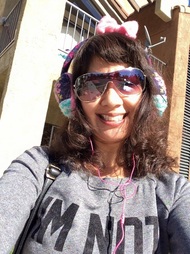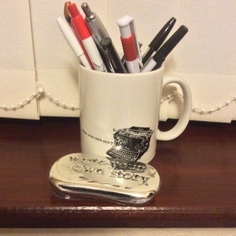|
Okay so I know I promised you more blog posts for 2017 but you know how life gets in the way, and when it hasn’t I’ve been using my spare time working on my book which is coming along swimmingly (I’m around the halfway mark now and on to the home stretch). However I do want to keep my word and update you guys a bit more regularly with different posts be it about my writing, what I’ve been up to, etc.
So I thought we’d start off with a writing-related post and I’ll try to answer two questions that I (presumably along with every other writer) get asked all the time: “Where do you get your ideas from?” and “What is your writing process?” The truth is I like to think of my brain as a computer that downloads and process the information that’s sent down to it from the cloud. I’d like to be able to say that I set out to write a certain story (be it as a novel, script or screenplay) but more often than not ideas come to me fully formed. Many a time I’ve had the entire plot and all the characters come straight to me and then my mind becomes a new world to explore, with a tale that needs to be told. I’m very fortunate that when I have ideas fully formed in my head, my fingers go on autopilot as they type away at the laptop. It’s almost as if some force is controlling me and I become a vessel that’s channeling the words and putting them on the page. However, whilst most of the time I’m lucky enough to receive my creative ideas fully formed this doesn’t happen ALL the time. Of course there are occasions where only nuggets of an idea come to me. One of my favourite Writers/Directors David Lynch often compares ideas coming to him like catching fish. He once said: “Ideas are like fish. If you want to catch little fish, you can stay in the shallow water. But if you want to catch the big fish, you’ve got to go deeper. Down deep, the fish are more powerful and more pure. They’re huge and abstract. And they’re very beautiful.” What Lynch says about ideas is true, the deeper you can go within your own mind, your creativity and your thought processes the better the end result will be. It’s also having the courage to never think or dream too big but instead to embrace the creativity, trust your instincts and allow yourself to go with the flow. Lynch also talks about the necessity of having a lot of patience too, which I believe to be ESSENTIAL to any good writer. Even though I may often have the plot fully formed in my head, writing is fluid and things can change in the process. Even though the story beats are there, getting the right words can be a task. I’m a big believer in never forcing an idea. For some writers it may help but for me personally, I’ve always found that good ideas will expand and unfold in their own time. I truly believe that an idea that is forced will only result in a work that is mediocre at best. As a result of this there will be some days where I can easily write 2,000 words in one sitting and others where I only write 200; this is because if the right words or plot beats aren’t coming to me then I will put the writing on hold and return to it another time and re-read what I’ve written with fresh eyes and a clear mind which then gives me a renewed focus and creativity to continue writing. Athletes and sportspeople often talk about how their bodies are a temple that has to be looked after in order to achieve their goals and it’s the same for writers. It’s important to mentally look after yourself, to have the ability to clear your headspace before writing. If I’m not in the mood to write I will never force myself to, if I’m writing and I start flagging then I’ll stop. There’s really no point in writing if you’re mentally fatigued as the end result will only disappoint when you read it back. As a final point with regards to ideas, many writers often give the advice of “write what you know”, controversially this is something that I myself don’t particularly advocate. I never write things based on myself or my own life because to me that’s a story I’m living, not one that needs to be told. Instead I write the ideas that pop in to my mind or I write the stories that I WANT to tell, something that I as a reader/viewer would enjoy. As for other parts of my writing process, I like to write somewhere where I won’t be disturbed and I can get “in the zone”. Usually, this space is my bedroom where it’s nice and quiet or alternatively, on the rare occasion in Britain when the sun is shining, outside in the garden. Sometimes I also find it useful to listen to music to help me get me in to the mood of the scene that I’m trying to write. In order to achieve this I usually listen to movie scores rather than songs as they can help create that atmosphere and get the creative wheels turning. Naturally, as a screenwriter I am quite fond of writing dialogue but writing believable dialogue is something that many writers often struggle with. My solution for this obstacle is simple really: say it out loud. I often find speaking the dialogue out loud after you’ve written it is a trustworthy way of seeing if it’s believable. In fact sometimes, I’ll have conversations between two characters out loud before writing a word; this helps me to get in to the characters’ mindset, think about what they would say and make sure it sounds believable. Admittedly, I’d probably get a few funny looks if I were to do this whilst writing out in public. Most importantly though, perhaps the best writing advice I can give is to make sure you know your destination. There really is very little point in just sitting down and writing without any kind of idea where you’re going; you wouldn’t hop on a train without knowing where you’re going to and the same logic applies to writing. Yes, writing is fluid and ideas can change, that’s a natural part of the writing process, but to write without knowing your ending runs the risk of meandering plots, undeveloped characters and unresolved story arcs. You might not know every last detail of how your story should end, but you should have a general sense of what the ending will be: where the characters end up, how the story is resolved and what the new equilibrium will be. Once you know this you have something to work towards, yes the journey may (and almost certainly will) change along the way but you have a goal to work towards. In addition, I find it handy (especially working on my novel) keeping a journal full of notes, ideas, possibilities and plot points to make sure I always know where I’m at and to prevent the writing becoming confused and contrived. The reality of writing is that every writer on the planet approaches it differently and will have a unique process that works for them. What I have shared above is just a brief glimpse in to my creative process, but perhaps for someone out there there’s some good advice to take away. One thing’s for sure, the ability to write, to tell stories and to entertain is a gift and anyone who feels compelled to do so should embrace the call, have fun with it and never give up on their dreams.
0 Comments
 Jackie G | Photo © Jackie G / Facebook Jackie G | Photo © Jackie G / Facebook Once upon a time, in a town in California, there lived a woman called Jackie G. My very good friend Jackie G. I could write thousands of words explaining why Jackie is awesome but for now you’ll just have to take my word for it. Jackie’s always been supportive of me and my writing/media career and she’s always there for me in my times of need. One time Jackie sent me some gifts, a mug and paper-weight, which had such a touching message on them: “Write Your Own Story”.  Write your own story Write your own story I was so moved when I received these presents, as not only were they such a thoughtful gift, but that simple phrase printed on them had the most profound effect on me. Now as a writer who loves to express his creativity, of course I’m gonna love a phrase such as that, but it goes so much deeper than that. I know I’m getting slightly philosophical here, but we have the power to shape our own paths in life and I believe it’s important that we do that. I think it’s fair to say that I’ve always been a bit of an outgoing eccentric, but I can honestly say that I wouldn’t want to be any other way. Personally, I believe it’s better to stand out from the crowd and celebrate your individuality rather than be just another sheep amongst the flock. In every step in life we should be doing things because we want to do them not because we’re expected to them. Always try to do things to the best of your ability and reach your highest potential. Shine brightly, follow your dreams and never hide your talents from the world. Ultimately though, we should think of the legacy that we will one day leave behind. Does that legacy represent you well? Have you been true to yourself? If the answers to these questions are ‘Yes’ then it sounds to me like you have written your own story, a job well done I’d say. -Ben L Maden |
Ben's BlogWhether it's news about my projects, reviews or my thoughts on anything & everything, this blog will cover it all. Archives
May 2017
Categories
All
|
 RSS Feed
RSS Feed